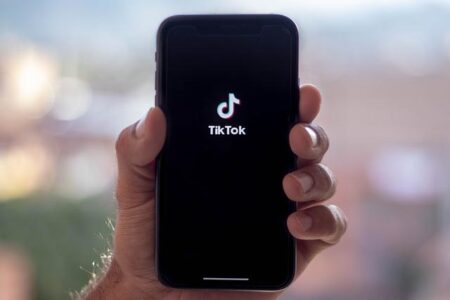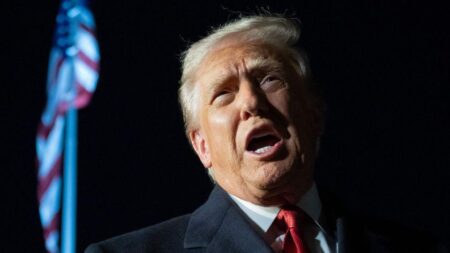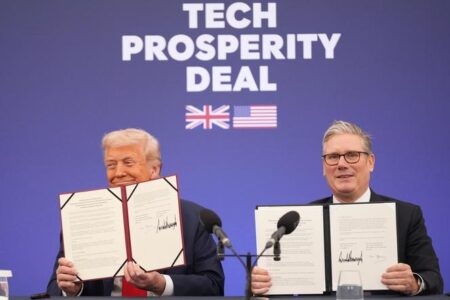At the Delhi summit, India is thrilled to team up with US tech giants, poised to turbocharge its AI prowess and open exciting new avenues for economic growth and groundbreaking innovation
Browsing: technology policy
Top Democrat on the US House China Committee signals a potential breakthrough, expressing openness to approving Nvidia’s H200 chip sales to China-hinting at a significant shift in tech trade policies amid the complex US-China relationship
India has called on social media platforms to accelerate the removal of deepfake content, taking a bold stand against misinformation and protecting public trust. This decisive move underscores growing concerns over the far-reaching impact of synthetic media on society
China is supercharging its AI development, sparking a wave of rapid innovation while rigorously enforcing strict regulations. This daring strategy aims to launch the nation into the global spotlight as a leader in artificial intelligence
TikTok has forged a groundbreaking deal to launch a new U.S.-based entity, aiming to ease concerns over its Chinese ownership and address national security issues raised by U.S. officials-potentially revolutionizing how it operates
The Trump administration has unleashed a wave of new security regulations that sharply restrict Nvidia’s chip sales to China, citing urgent national security threats. These measures dramatically tighten export controls on the most advanced semiconductor technology
A fierce showdown is unfolding over Trump’s decision to block AI chip sales to China. Supporters hail it as a vital move to protect national security, while critics warn it could spark economic chaos and strain US-China tech relations
China’s bold innovation strategy is rapidly reshaping global industries, driving technology, cutting-edge research, and sustainable development to the forefront. This dynamic approach not only fuels explosive economic growth but also transforms the very fabric of international trade
Apple is gearing up to push back against India’s order to preload a state-run app on its devices, emphasizing the importance of user choice and privacy. This clash escalates political tensions as India strives to strengthen its digital sovereignty
The Centre has directed smartphone manufacturers to preload its cybersecurity app, Sanchar Saathi, on all new devices. This bold move aims to enhance user safety and provide seamless, robust protection against digital threats
Germany is grappling with the unstoppable rise of US tech giants, sparking urgent demands for stronger digital sovereignty and a daring surge in homegrown innovation to secure its place in the fiercely competitive global tech landscape
The United Kingdom has launched a groundbreaking new bill set to revolutionize cyber defences, protecting critical infrastructure and businesses from the rising tide of cyber threats. This bold move represents a major breakthrough in the nation’s security strategy
America’s chip restrictions are intensifying the pressure on China’s tech industry, triggering significant supply chain disruptions and slowing the pace of innovation. As The Wall Street Journal reports, these hurdles are growing just as Beijing scrambles to discover new breakthroughs
Europe has a unique opportunity to unlock powerful insights from China’s daring push in critical-tech innovation. Through bold state-led investments and visionary long-term planning, China reveals winning strategies to boost competitiveness and achieve technological independence
China and Brazil are rapidly deepening their partnership in cutting-edge technologies, creating a vibrant synergy between groundbreaking innovation and thrilling new opportunities-all while carefully addressing rising concerns about digital sovereignty, as highlighted by The National Bureau of Asian Research (NBR)
President Trump announced that the U.S. and China are on the verge of sealing a major trade deal ahead of his upcoming meeting with President Xi. This exciting development comes at a pivotal moment, as the U.S. weighs its next move on TikTok’s future in the country
Japan’s government has urged OpenAI to secure official approval regarding copyright issues tied to the use of “Sora 2” content. This move highlights growing concerns over AI-generated material and the safeguarding of intellectual property rights
The ICT Minister traveled to Brazil to unveil an ambitious strategic plan aimed at turning the Amazon into a global connectivity hub, boosting infrastructure and accelerating digital integration throughout the region, BNamericas reports
The U.S.-U.K. Tech Prosperity Deal is set to unleash a wave of groundbreaking innovation, but it also ignites a fierce debate about the risks to national sovereignty. Critics warn that the agreement could prioritize rapid growth and expansion over protecting privacy and preserving full control
Canada’s railway tycoons once shaped the nation’s destiny with vast networks and unmatched power. Today, experts warn us to stay alert as AI billionaires rise, threatening to wield similar unchecked control over our society and economy




















